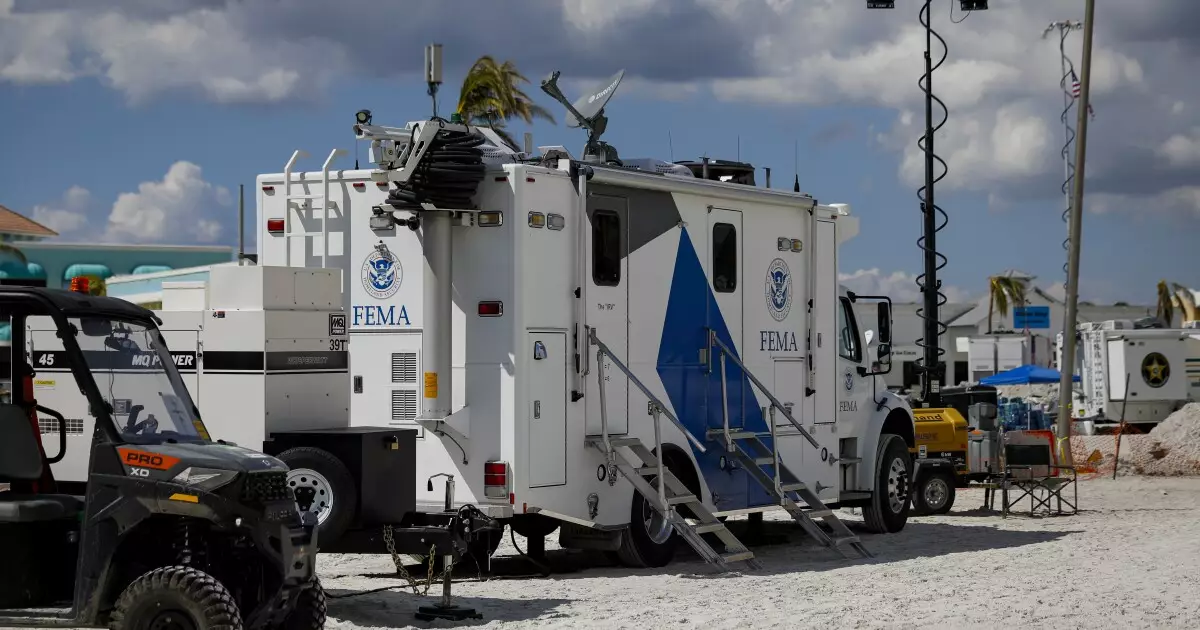The Federal Emergency Management Agency (FEMA) is no stranger to criticism, but recent warnings about drastic budget cuts from influential voices in the finance sector, including S&P Global Ratings and experts like Tom Kozlik from HilltopSecurities, highlight a dire scenario that could reverberate across our nation’s municipalities. These cuts, particularly targeted at FEMA, are not merely fiscal adjustments but could represent a cornerstone shift in how federal disaster assistance is structured. When political leaders openly propose reevaluation or even elimination of a vital asset like FEMA, it sends shockwaves that resonate deep into the financial stability of areas frequently besieged by natural disasters.
Kozlik’s apprehensions regarding southeastern U.S. municipalities highlight a growing concern: our nation’s increasingly shifting climatic realities. Natural disasters are becoming more commonplace in regions that have historically housed a significant number of bond issuers. By slashing FEMA support, we expose these areas to tremendous financial risk that clearly jeopardizes their ability to recover and rebuild.
Local Bond Issuers – The Impact of Federal Disengagement
A reduction in federal support translates directly into localized risks for municipal bonds. As Kozlik points out, areas along the Gulf Coast and Atlantic coastlines, which have seen the most disaster declarations between 2015 and 2024, would face enormous challenges. When bond issuers in these municipalities are forced to endure the economic fallout from increased disasters without FEMA’s safety net, the consequences are multi-faceted. Liquidity strains, reserve withdrawals, and increasing capital repair needs are just the beginning.
The primary worry revolves around municipalities that may have limited resources and lack the capacity to absorb the aftermath of these disasters. As S&P emphasizes, the absence of a solid federal backup for disaster recovery efforts may catalyze a significant credit weakening for these states and cities. This is not just speculation; it’s a forewarning from financial experts who recognize the complicated domino effect that can drain resources and negatively impact local economies.
Disasters and Debt: Towards a Dangerous Future
When we consider the states precariously positioned on the front lines of storms, wildfires, and floods, their financial futures look grim without the assurance of FEMA’s backing. The potential ramifications of these cuts extend far beyond immediate disaster recovery. Municipalities may grapple with decreased tax revenues, leading to additional pressure on essential services and erosion of public confidence. What happens when a city that thrives on tourism suddenly finds itself in an ongoing cycle of recovery without substantial federal aid? The answer is unsettling and suggests a potential spiral of declining population and economic viability.
This erosion of creditworthiness could expose municipalities to unfavorable borrowing terms or, worse yet, a complete inability to finance public projects. This jeopardizes roads, schools, and vital infrastructure that underpin the quality of life for millions.
The Uncertain Future of FEMA and Credibility in Crisis Management
It’s worth pondering what the future holds for FEMA and, by extension, how that impacts municipal bond markets. The current political discourse around FEMA’s function raises a critical question: does the federal government genuinely understand the stakes involved for local communities, or is this yet another instance of political maneuvering devoid of real-world implications? President Trump’s vague comments about eliminating or phasing out FEMA have sown doubt, and the nuanced recommendation of less funding in the fiscal 2026 budget is troubling.
Kozlik predicts that while FEMA may not completely vanish, its capabilities and resources are anticipated to diminish significantly. Such a trajectory could unintentionally open Pandora’s box when it comes to disaster preparedness, leaving states and municipalities scrambling for solutions at precisely the wrong time.
A Call for Responsible Governance
At the heart of these issues is an urgent plea for more responsible governance. Slashing funding to FEMA, or failing to maintain a robust disaster response strategy, reflects a cavalier attitude toward the real and pressing challenges that municipalities face. In an era of climate change and increased natural disasters, we require a federal commitment to support our local communities. Reducing reliance on FEMA, as some have suggested, without providing feasible alternatives seriously undermines the credibility of our crisis management systems.
As we stand at this crossroads, it becomes increasingly clear that federal aid isn’t merely a question of financial assistance, but of moral responsibility toward those who live in disaster-prone areas. Addressing the crisis with measures that promote resilience rather than austerity is imperative, or else the ramifications for our municipal bonds and communities could be catastrophic.

